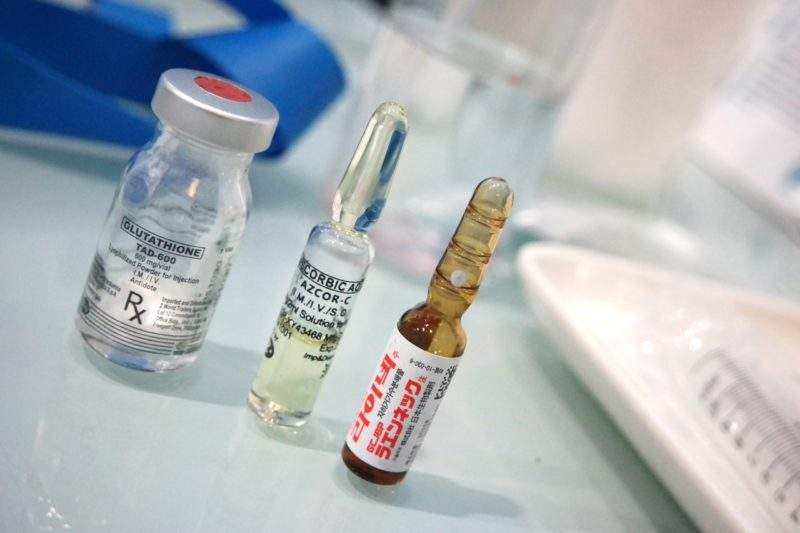The FDA will create a Drug Shortages Task Force to address drug manufacturing problems, FDA Commissioner Scott Gottlieb has announced. Gottlieb also called for pharma companies to invest in more production capacity.
In a July 12 statement, Commissioner Gottlieb noted low-profit generic medicines are especially likely to suffer shortages. Many of these are sterile parenteral drugs, which can be challenging and expensive to manufacture.
“The low profit margins, and the significant cost of manufacturing these complex drugs, has resulted in consolidation in the industry. The only way to produce these low-margin products profitably is to manufacture them at tremendous scale. This has resulted in fewer and fewer manufacturers for certain key products,” he said. It has also resulted in an under-investment in manufacturing, especially of sterile injectable drugs, he added.
“Unless drug makers are investing in their manufacturing facilities, it can create conditions that give rise to production stoppages in order to fix manufacturing problems,” the Commissioner said.
Financial incentives
The task force will examine, among other issues, reimbursement policies that could be making profitable drug manufacturing difficult. It will also explore incentives to encourage expansion of manufacturing capacity and enhanced quality, and consider developing a list of essential drugs for which it is critical to ensure an uninterrupted drug supply. As well as regulatory answers, the task force will consider financial incentives to make sure the FDA does not counterproductively discourage pharma investment in manufacturing drugs that are more likely to go into shortage.
Other steps to be considered are expanding the FDA’s authority to require applicants of certain drugs to conduct a risk assessment to identify the vulnerabilities in their drug supply that could cause a shortage, and to establish risk mitigation plans to address those weaknesses proactively.

US Tariffs are shifting - will you react or anticipate?
Don’t let policy changes catch you off guard. Stay proactive with real-time data and expert analysis.
By GlobalDataManufacturing technologies
The task force will also directly explore manufacturing issues and support new technologies that can improve manufacturing, Gottlieb said, building on existing programs to prevent shortages through new production technologies and quality metrics.
In a separate post on the official FDA blog “FDA Voice” on July 13, Gottlieb wrote that drug shortages could be addressed in the long term by embracing continuous manufacturing, which is less prone to the shortcomings that trigger many drug shortages. Continuous systems reduce and centralize manufacturing steps, allowing problems to be more quickly identified.
Embracing flexible manufacturing will also allow fast adjustment of volumes to suit demand, especially in response to seasonal outbreaks—for example, of vaccines.
The task force will be led by Keagan Lenihan, the FDA’s associate commissioner for strategic initiatives, and will include staff from the Centers for Medicare and Medicaid Services (CMS) and the Department of Veterans Affairs (VA).
There were 39 new shortages between January 1 and December 31, 2017, down from a peak of 251 new shortages in 2011, according to FDA figures.
Injectables shortages
The FDA’s Emergency Operations Center will monitor FDA-regulated facilities that could be impacted by any storms as the 2018 hurricane season begins, Gottlieb said. Drug shortages last year followed the 2017 Atlantic hurricanes, which initially shut down several important medical product manufacturing facilities in Puerto Rico, exacerbating shortages of IV saline and other fluids. Manufacturers with facilities on the island include Johnson & Johnson, Baxter International, Patheon (owned by Thermo Fisher), and Mylan (see Bio/Pharmaceutical Outsourcing Report, November 2017, a publication by PharmSource, a GlobalData Product).
2017 also saw shortages of injectable opioid analgesics and of Mylan’s epinephrine auto-injector, EpiPen. Hydromorphone, morphine, and fentanyl were among the painkillers in shortage because of production delays at a Pfizer facility in Kansas, exacerbated by manufacturing quality issues. Pfizer expects the delays to continue until 2019. To mitigate the shortage, the FDA recently allowed release of some products that were on hold due to potential quality issues, with instructions to help mitigate risks to patients. In response, other injectable analgesic companies have agreed to increase their production, including Akorn Pharmaceuticals, Fresenius Kabi USA, and West-Ward Pharmaceuticals.
EpiPen, produced by Mylan, also saw US shortages beginning in 2017 caused by multiple factors, including regional supply disruptions and manufacturer issues. In April 2017, Mylan recalled certain lots of EpiPen due to defects in the injector; the product was manufactured by Pfizer CentreOne subsidiary Meridian Medical Technologies (see Bio/Pharmaceutical Outsourcing Report, April 2017, a publication by PharmSource, a GlobalData Product).
Drug manufacturing services are covered in the PharmSource Service Database, a GlobalData product. If you do not subscribe to PharmSource databases, please contact your GlobalData sales representative to gain access.




